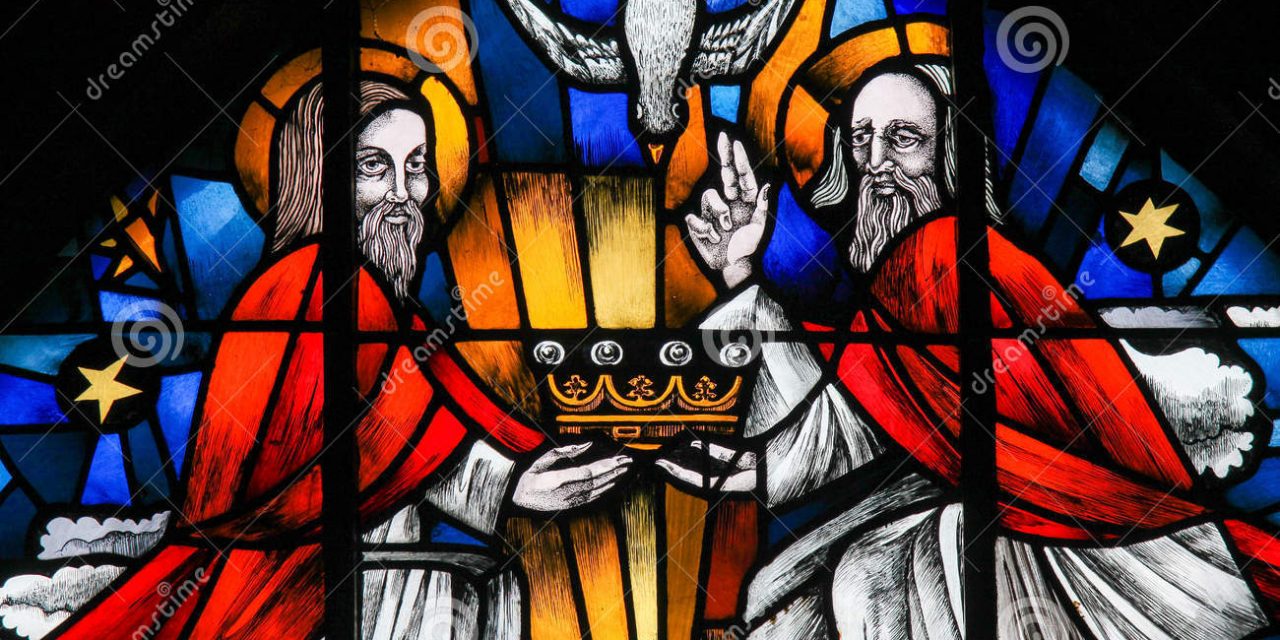Too often, the Trinity is presented as a mystery, and sometimes this sense of mystery is simply presented as a puzzle. The Trinity can’t really be explained, because God can’t really be explained. It’s all a great mystery. We have to take it on faith.
For all the ways in which those statements are obviously true, the readings for Trinity Sunday make clear that the real meaning of the Trinity is not puzzling uncertainty, but astonishing knowledge of who God is. In the first reading, Moses lectures the Israelites about how amazing it is that God is known to them. The second reading suggests God’s Spirit has adopted us as children, enabling us to call on God with the intimate address, “Abba, Father.” And the Gospel depicts the great commission to baptize in the name of God. Notice in all these cases: what is celebrated is a deeper knowledge of who the true God is, a much deeper knowledge than is possibly in a shadowy world of idols, dark forces, and philosophical abstractions. Trinity Sunday is not a day to celebrate unknowing, but to celebrate knowing.
Of course, there are two important caveats to add. One is that this “knowing” is pretty much 0% a matter of human achievement. The image of adoption in the second reading well captured the utter gratuitousness of the intimacy that is enjoyed. The practice of infant baptism, for all its theological challenges, makes clear that this knowledge of God is not an achievement on the part of the baptized! And the first reading is playing on the Exodus stories, all of which involve God’s unilateral action for the sake of Israel. The “knowing” here is a gift.
And then the second caveat is that the knowing really involves knowing what to do. Yes, this is a moral theology blog, but notice the prominent place of God’s commandments in these readings. Another way to say this is knowledge of God is a gift that, if understood correctly, is oriented toward a task. It isn’t given so that we can bask in some kind of mental certainty. It’s given so that we can go confidently out into the world and do God’s will. That will is preeminently to share this very gift of the Gospel, especially through the sacraments and through following the greatest commandment of genuine love for all God’s children – which, of course, means all.
So let’s stop saying the Trinity is a mystery, at least in the “cosmic puzzler” sense. The amazing thing is all that we do know about God. And what knowing the true God charges us to do.




Trackbacks/Pingbacks